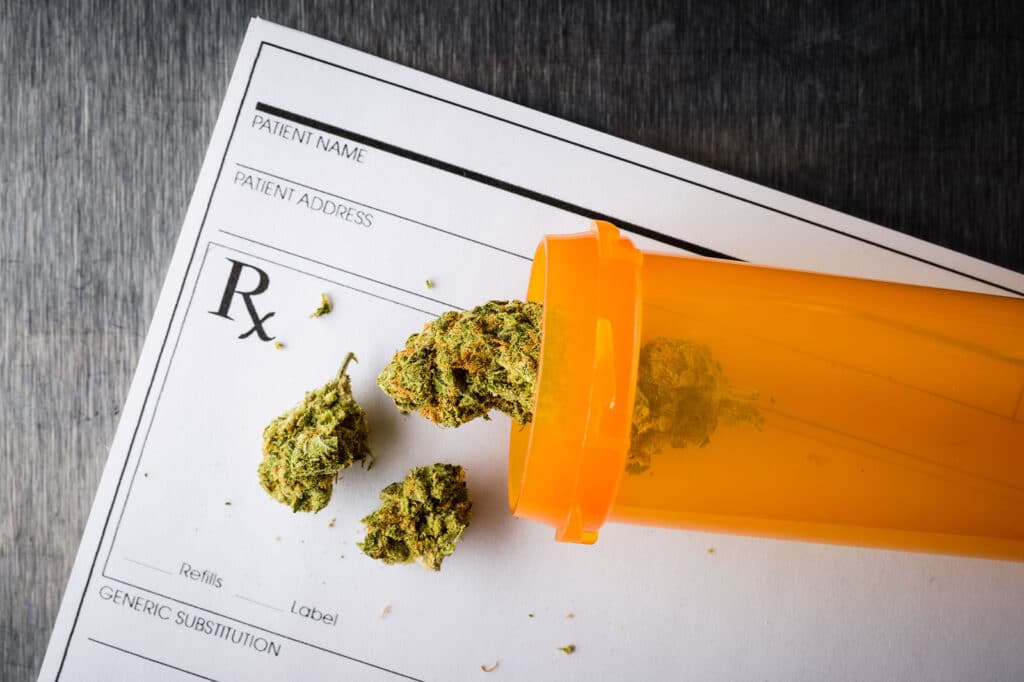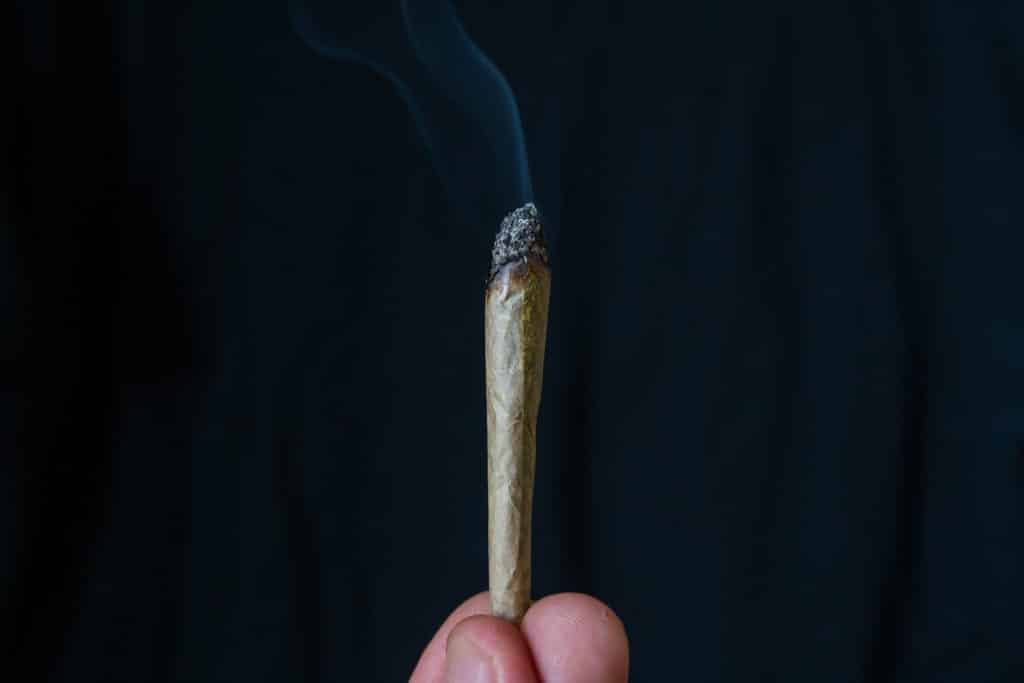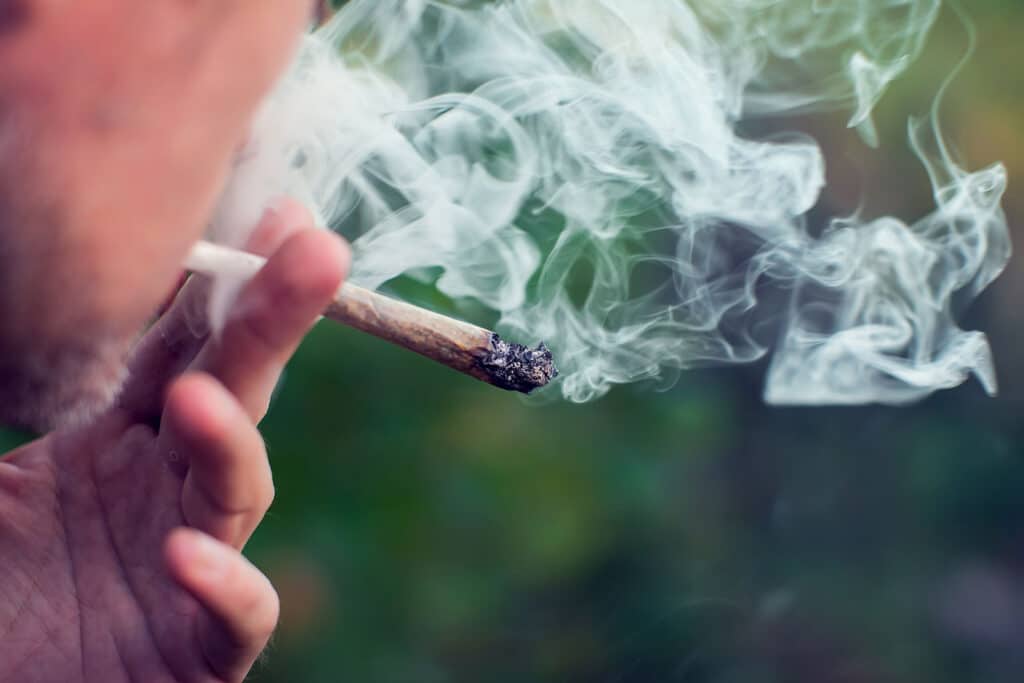Back in January 2020, Illinois legalized medical and recreational marijuana use. This led to a significant boost in the number of cannabis users in the state.
The drug has mind-altering properties that can cause relaxation and euphoria. Because it’s a natural herb, most people think they have nothing to worry about when it comes to cannabis use.
Contrary to popular belief, marijuana can be addictive and dangerous. Once you develop a chemical dependence on cannabis, quitting can be hard.

So, if you’re looking for marijuana addiction treatment in Illinois, we’ve got you covered. At the Illinois Recovery Center, we can help you overcome cannabis dependence safely. Let’s find out how marijuana can affect users and the treatment options available to resolve addiction.
Table of Contents
What Is Marijuana and How Does It Affect the Brain?
Most people in Illinois know what marijuana is. It has many street names including weed, pot, ganja, and even the devil’s lettuce. Regardless of the moniker you use, the drug can ease minor aches, reduce blood pressure, and lead to a sense of calm.
That’s why users self-medicate using marijuana to dull symptoms of stress and as a way to escape from the world. On top of that, cannabis can increase your appetite, which is useful for cancer patients battling with nausea.
While marijuana is legal in Illinois, that doesn’t mean the herb doesn’t come with a long list of side effects. With extended use, cannabis can affect many normal body functions, leading to a lower quality of life.
Plus, because of its mind-altering properties, people can develop a chemical dependence on the drug.
Marijuana and the Brain
Cannabis contains two main active components that can affect a user’s mental and physical states. The first is cannabidiol (CBD), which is a chemical that can reduce inflammation, treat insomnia and relieve chronic pain and anxiety.
This particular compound isn’t all that dangerous because it won’t lead to a high. That means the chances of developing a CBD addiction are slim.
However, the second component of marijuana, tetrahydrocannabinol (THC), is psychoactive. It can cause a user’s system to release a sudden rush of endorphins. These are the pleasure hormones that in large quantities can result in euphoria.

Why Is Marijuana Addictive?
Our bodies release endorphins naturally as a response to specific stimuli. You produce the pleasure hormone during:
- Exercise
- Sexual intercourse
- High-stress interactions
- Physical pain
It’s your body’s way of making itself feel better after a significant event. However, when a person uses marijuana for an extended period, their system will stop natural endorphin production.
So, without the drug, they’ll feel dull aches and have a hard time enjoying life. The easiest way to overcome this discomfort is to take another hit of cannabis. Over time, this will develop into an addiction that can take weeks to resolve.
Marijuana Addiction Statistics
Marijuana isn’t as addictive as other drugs like opioids and stimulants. According to official reports, only 9% of adults who use cannabis develop a substance abuse issue.
Yet, this doesn’t mean a marijuana addiction is rare. Approximately 48.2 million American citizens struggle with some form of cannabis dependence. This translates to almost 18% of the population.
Marijuana Tolerance and Dosage
If you only use marijuana one to five days per month, you don’t have to worry about tolerance or addiction. The herb won’t spend enough time in your system to alter your brain chemistry.
In contrast, if you use cannabis regularly, you can develop a high tolerance within a few months. That means you’ll need to consume large doses of marijuana to achieve a euphoric state.
Unfortunately, this can lead to an overdose. Unlike other drugs, marijuana overdose isn’t fatal, although excessive cannabis use can cause serious issues. The person dealing with addiction may black out for long periods or experience hallucinations.

What Are the Signs of Marijuana Abuse?
We all know the common signs of short-term marijuana use, like bloodshot eyes or difficulty focusing. Yet, using cannabis for extended periods can bring about many other symptoms. These include:
- Insomnia
- Dehydration
- Increased appetite
- Short-term memory loss
- Social isolation
- Anxiety
- Depression
- Reduced response time
- Mental fog
In extreme cases, some users developed medical conditions like cannabinoid hyperemesis syndrome. This causes uncontrollable vomiting, dehydration, and even organ failure.
What Are the Withdrawal Symptoms of Marijuana?
Stopping any addictive drug like marijuana cold turkey is never a good idea. Doing so can result in severe withdrawal symptoms that are almost impossible to manage without medical intervention.
Some of the common side effects of marijuana withdrawal are:
- Irritability
- Increased stress levels
- Gastrointestinal issues
- Psychosis
- Paranoia
- Impaired judgment
- Decreased appetite
- Demotivation
These side effects can last around two to three weeks, depending on the severity of the addiction.

How to Treat Marijuana Addiction
Marijuana addiction, like all other substance abuse disorders, doesn’t just go away overnight. People who struggle with chemical dependence need a customized treatment plan to get clean.
This can be challenging to do on your own. That’s where the Illinois Recovery Center can come in handy. At our facilities, we offer several rehab programs that’ll help get you on the wagon in no time. Here’s an in-depth look at our services:
- Residential Treatment
Detoxing from marijuana isn’t a simple task. When the withdrawal starts, you’ll need a qualified team of doctors to help you manage the symptoms.
To ensure you get access to proper monitoring and care, we suggest you check into a residential program. In our facility, you attend therapy sessions and addiction counseling during your stay. We create a personalized plan that takes into account factors like your age, gender, weight, and height.
- Medication-Assisted Treatment
Until a person struggling with marijuana addiction can re-learn how to produce endorphins on their own, they’ll have a difficult time returning to normal life.
Simple tasks like grocery shopping or cleaning can become a major chore, which will affect the person’s ability to take care of themselves.
Luckily, there are a few types of medications that can ease withdrawal symptoms. They can reduce anxiety, nausea, and physical pain.
This will make staying on the road to recovery much simpler. If that sounds like a good plan, check out our medication-assisted program.
- Dual Diagnosis Treatment
We often see people using marijuana to self-medicate preexisting mental health conditions like depression. While cannabis can help relieve anxiety for a short period, it can’t cure any psychological issues.
Instead, the user now has to deal with mental health problems compounded with addiction. This may seem like a complex task, but with dual diagnosis treatment, it can be a straightforward process.
The plan allows people who are struggling with addiction to overcome substance abuse disorders as they work on their mental health.
- Dialectical Behavioral Treatment
Contradicting thoughts are a natural occurrence for people who deal with substance abuse. For instance, many of them realize that marijuana isn’t good for them.

However, they long for the sense of relief that comes as soon as the drug enters their system.
These conflicting ideas can complicate the road to recovery. To resolve this issue, you can rely on dialectical behavioral therapy. You’ll learn new coping mechanisms and how to control marijuana cravings.
- Outpatient Treatment
If you’re looking for a program that doesn’t require an intense commitment, outpatient treatment is the way to go. This plan offers people who are struggling with addiction a safe environment to work through various issues.
The patients will spend around five to six hours a week in a rehab facility working with doctors and other medical professionals. After that, they can spend the rest of their time in the real world, learning to cope with their addiction.
- Intensive Outpatient Treatment
Intensive outpatient treatment is a combination of residential and outpatient programs. You only stay at the rehab facility on a part-time basis for around 36 hours a week.
During your stay, you can explore various types of treatment like individual and group therapy. This will provide a more structured way to overcome addiction quickly. That makes it particularly useful for people who have had several relapses in the past.
- Sober Living Programs
Since marijuana is easily accessible in Illinois, staying sober can be tricky. You can’t go to a social gathering without being offered a puff or two.
So, if you’re early in the recovery process, a sober living program can be a lifesaver. With this option, you leave temptation behind and replace it with a supportive environment.
- K-9 Enrichment Therapy
Animal therapy is an excellent way to deal with the depression that happens due to marijuana addiction. It’s a medication-free option that can improve your mood and help you overcome many withdrawal symptoms.
Cuddling up with a furry friend can relieve stress and help your body produce natural endorphins.

Wrapping Up
When looking for marijuana addiction treatment in Illinois, there are a few programs you can choose from. At the Illinois Recovery Center, we offer various services that can help you kick a marijuana habit in no time.
These include outpatient programs, medication-assisted treatment, and dual diagnosis. Plus, we can provide residential treatment and sober living programs for people who need extra attention.
Please contact Illinois Recovery Center to learn about Marijuana Addiction Treatment near you.



